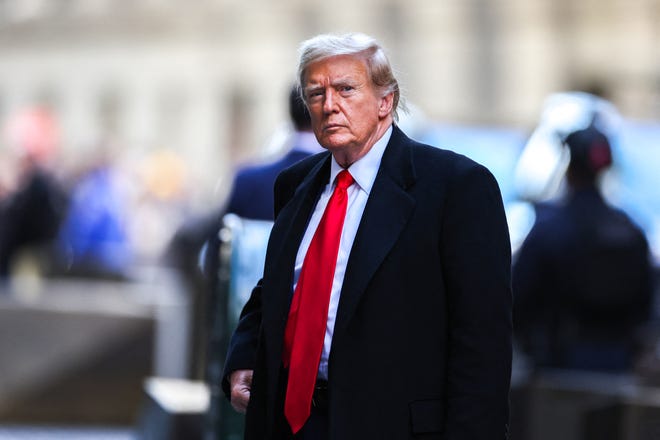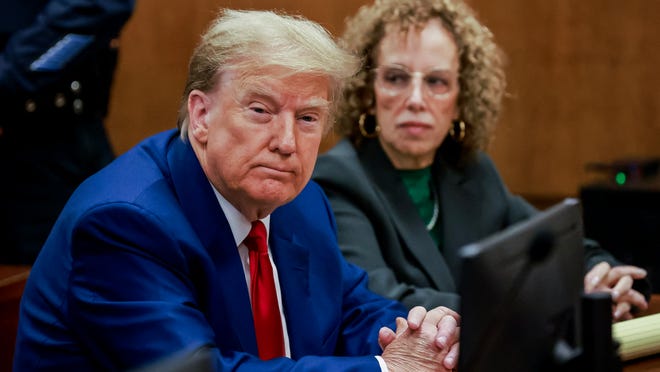
A New York appeals judge on Monday rejected former President Donald Trump’s emergency effort to delay his upcoming hush money trial until a decision was made on his request to move the case out of Manhattan.
Trump is scheduled to face trial April 15 on 34 felony counts of falsifying business records to cover up a $130,000 hush money payment to adult film actress Stormy Daniels, who says she had a sexual encounter with the real estate mogul. Trump denies Daniels’ claim and has pleaded not guilty to the charges.
Trump reimbursed his former lawyer, Michael Cohen, for the October, 2016 hush money payment and caused the Trump Organization to falsely record the purpose of the reimbursement payments as “legal services,” according to prosecutors. The presumptive Republican presidential nominee is charged with felonies rather than misdemeanors because prosecutors allege Trump violated federal campaign finance laws and was trying to violate New York election and tax laws when he falsified the records.
Trump has pleaded not guilty to all 34 counts.

Trump seeks to move case out of Manhattan
In his Monday request for a pause in the case, Trump argued “a fair and impartial jury cannot be selected right now based on prejudicial pretrial publicity.” He said the trial should be put on hold until after a New York appeals court rules on his request for the case to be moved to another jurisdiction.
Prep for the polls: See who is running for president and compare where they stand on key issues in our Voter Guide
Appellate Judge Lizbeth González rejected the delay request in a brief written decision Monday. Trump also planned to file an appeal on Monday over a gag order against him in the case, according to media reports by The New York Times and The Washington Post, which cited people familiar the plan.
In an earlier motion seeking to delay the trial, Trump’s legal team said 93% of Manhattan residents in a private survey indicated they had seen media about at least one of the criminal investigations he is facing. That shows there has been too much pre-trial publicity for him to get a fair Manhattan trial on April 15, according to his lawyers.
Bragg’s office responded that Trump’s “incessant rhetoric is generating significant publicity, and it would be perverse to reward defendant with an adjournment based on media attention he is actively seeking.”
The hush money case
Each count in Trump’s hush money case carries a maximum penalty of four years in prison. However, many legal experts expect the sentences for each count would run simultaneously instead of being stacked on top of each other, even if Trump were convicted. The judge wouldn’t be required to sentence Trump to any jail or prison time at all.
Cohen, who is a potential witness in the upcoming trial, served time in prison after he pleaded guilty in 2018 to making an illegal campaign contribution through the payment and served time in prison. He admitted the payment was meant to protect Trump’s 2016 presidential election chances.
Merchan previously denied a request by Trump’s lawyers to exclude Cohen’s testimony based on what they said was Cohen’s history of lying. They highlighted in particular Cohen’s statement at Trump’s New York civil fraud trial that he had engaged merely in “tax omission” and lied when he pleaded guilty to tax evasion.
Merchan said he hadn’t found an applicable law or court ruling that barred a prosecution witness from testifying because the witness’ credibility had previously been called into question.
Contributing: David Jackson







